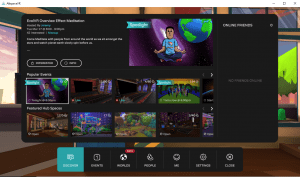Better questions to ask might be:
- What is this project’s purpose, and is the technology that’s being used helping to achieve and enhance that purpose?
- Why is technology being used the way it is? Is it still effective?
- Is there a better way to accomplish this that we weren’t previously aware of or that we didn’t previously have access to?
iPads have come a long way since our initial investment in interactive whiteboards.
- Is there a better way to accomplish this that we weren’t previously aware of or that we didn’t previously have access to? iPads have come a long way since our initial investment in interactive whiteboards. Perhaps they can offer us a purposeful and innovative solution that wasn’t previously available.
+++++++++++++
more on SAMR in this blog
https://blog.stcloudstate.edu/ims?s=samr
Academic Library Strategy and Budgeting During the COVID-19 Pandemic

++++++++++++++
more on the Ithaka S+R surveys in this IMS blog
https://blog.stcloudstate.edu/ims?s=ithaka
The Impacts of COVID-19 on Academic Library Budgets: Fall 2020
not all institutions have targeted their libraries equally. On average, libraries at private institutions fared better than those at public institutions, and those at baccalaureate colleges were most likely to not report a change in their budgets.
In light of present circumstances, publishers and other vendors have several opportunities to support the sector beyond the free access offers and price caps that have been extended. To take one example, in light of staffing austerity measures, there could be renewed attention to reducing the administrative burden faced by librarians to acquire, configure, and maintain products. And, with so many users working remotely, bringing greater seamlessness by reducing authorization, authentication, and other discovery to access barriers in an off-campus environment has never been more important. Libraries and publishers alike are only beginning to understand the impacts of reduced budgets, changes in work locations, and future higher education and funder priorities on strategies for achieving open access.
https://www.facebook.com/groups/RemakingtheUniversity/permalink/1454440301415995/
proctoring software and surveillance in the COVID-19 era.
https://www.insidehighered.com/blogs/just-visiting/teach-against-surveillance
+++++++++++
more on proctoring in this IMS blog
https://blog.stcloudstate.edu/ims?s=proctor
https://www.theguardian.com/world/2020/oct/14/poor-numerical-literacy-linked-to-greater-susceptibility-to-covid-19-fake-news
The research, published in the journal Royal Society Open Science
Researchers at Cambridge University said the findings suggested improving people’s analytical skills could help turn the tide against an epidemic of “fake news” surrounding the health crisis.
Some scientists think that susceptibility to misinformation is related to political views, while others think it is linked to reasoning abilities.
Another distinct factor linked to belief in Covid-19 “fake news” was age, the researchers found. Being older was associated with lower susceptibility to misinformation everywhere (except Mexico)
Political conservatism was also linked to a slightly higher susceptibility to misinformation, the researchers found, but surprisingly, this link was not as strong in the US and UK as it was elsewhere.
+++++++++++++++++++
more on critical thinking in this IMS blog
https://blog.stcloudstate.edu/ims?s=critical+thinking
Bryan Alexander’s analysis of the the situation with Corona Virus and Higher Ed has wide response on Twitter:
++++++++++++
more on Bryan Alexander in this IMS blog
https://blog.stcloudstate.edu/ims?s=bryan+alexander

